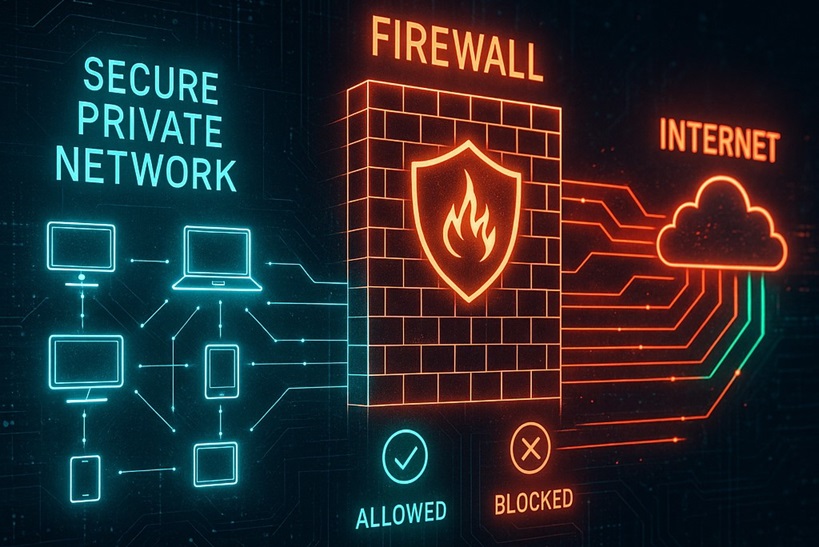Firewall: Your Digital Bouncer
Every click, every connection—your digital life is exposed to invisible threats. And while passwords get all the glory, your firewall is the unsung hero standing guard. In today's interconnected world, where phishing scams, malware, and ransomware attacks are evolving daily, a firewall remains one of the simplest yet most powerful cybersecurity defenses for home users and small businesses.
The best defense isn't a reactive response to a threat; it's a proactive barrier that never sleeps.

Why Firewalls Still Matter
While strong passwords and multi-factor authentication are important, they don't protect your network itself. That's where a firewall comes in. Think of it as your digital bouncer—it inspects every packet of data entering or leaving your network and decides whether to let it through or block it, based on security rules. Without this checkpoint, your network is like an open door, allowing any traffic (good or bad) to pass freely.
Key Protections Offered by Firewalls
A firewall acts as a barrier between your secure internal network and the chaotic, untrusted internet. It evaluates data packets like a customs officer at a border crossing, stopping anything suspicious before it reaches your devices. Here's how that helps:
- Malware Prevention: Blocks connections to known malicious servers, preventing downloads or malware from "calling home."
- Access Control: Lets you decide which apps or services can access the internet, reducing the risk of rogue programs leaking data.
- DoS Attack Mitigation: Filters excessive traffic to help stop denial-of-service (DoS) attacks from overwhelming your network.
The Two Main Types of Firewalls
Software Firewalls
- Installed on individual devices (like Windows Defender Firewall or macOS Firewall). They protect a single computer or phone by managing its specific connections. Every device you own should have this enabled.
Hardware Firewalls
- Built into most routers, they act as the first line of defense for your entire network. This is especially important for smart home gadgets, gaming consoles, and IoT devices that lack strong built-in security.
Common Firewall Myths
Don't fall for these common misconceptions about firewalls:
- Myth: A firewall alone is all the protection you need.
Fact: A firewall is a crucial layer, but it works best as part of a defense-in-depth strategy, alongside other tools like antivirus software and VPNs.
- Myth: You only need a firewall if you're a business.
Fact: Every network, from a home with a single laptop to a large corporation, is a target. Enabling your home router's firewall is a simple, effective step to secure all your devices.
Best Practices for Home & Small Business Users
A firewall isn't a "set it and forget it" tool. To get the most protection:
- Enable both: Make sure your router's firewall is turned on and each device runs its software firewall.
- Keep it updated: Regularly update firewall software or router firmware for the latest protection.
- Pay attention to alerts: Don't ignore warnings—alerts may indicate a rogue app or suspicious network scan.
- Review settings: Customize your firewall to block unused ports, risky apps, or unfamiliar connections.
Quick Self-Check Quiz
True or False? A firewall alone can stop all cyberattacks.
Answer: False. A firewall is essential, but it works best when combined with other defenses like antivirus, VPNs, and smart user habits.
Cybercriminals aren't slowing down, and neither should your defenses. A firewall isn't just a technical feature—it's your digital security guard, standing watch 24/7. By keeping it active, updated, and understood, you're taking one of the smartest, most effective steps to secure your digital world.
At Access Deny, we're dedicated to providing you with the knowledge, strategies, and tools to navigate these challenges. Explore our resources to learn how you can take control and build your impenetrable digital fortress.
 Access Deny
Access Deny